From the Villages to the United Nations – The Voices of Maya Women
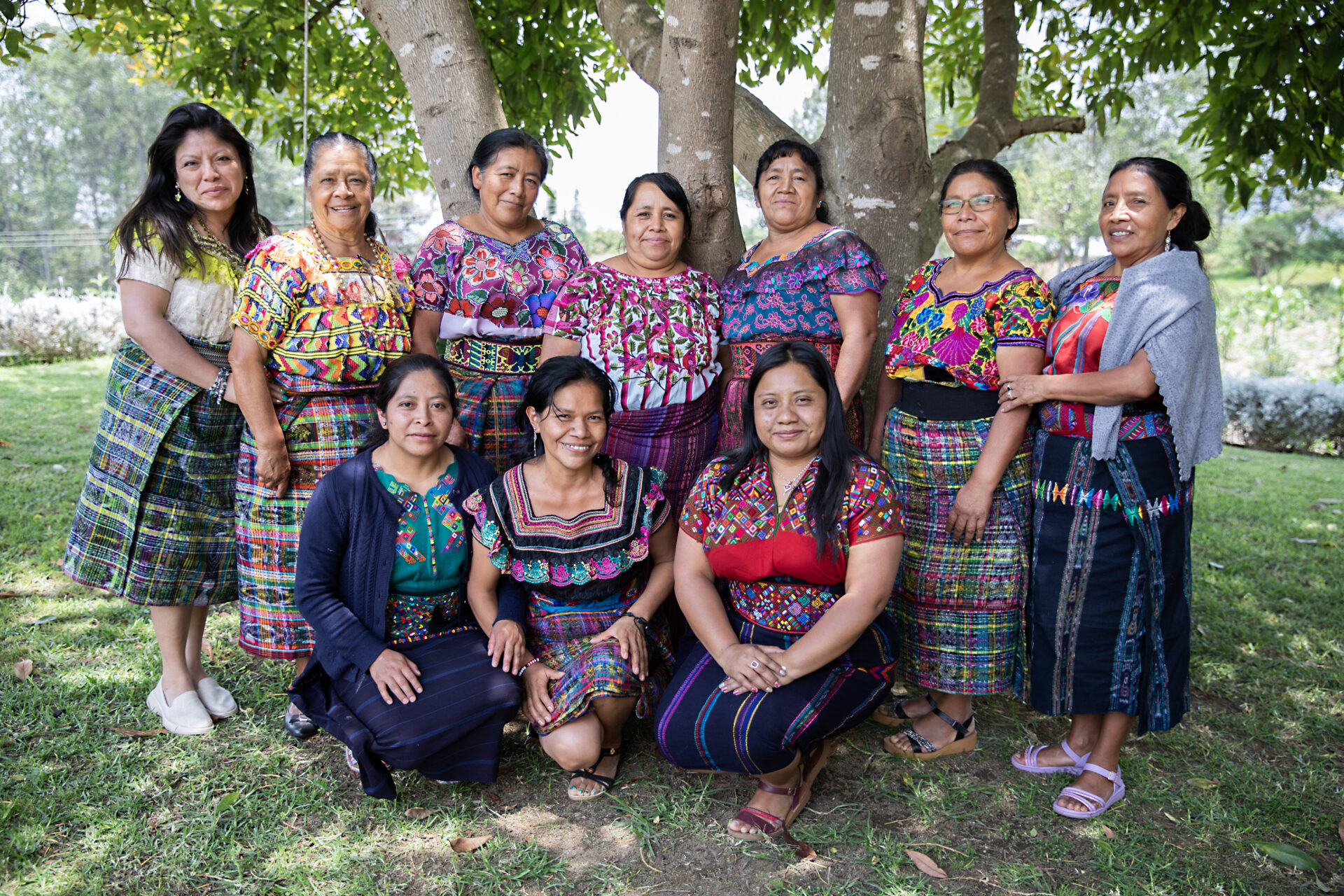
Across villages and towns in Guatemala, a movement of Indigenous women is rising against violence, discrimination, and silence. Through education, legal support, and political advocacy, Mujeres de Tz’ununija’ – a partner organisation of IM – is working to build a future in which women’s voices can no longer be ignored, and where the right to a dignified life takes root locally yet resonates all the way to the corridors of the United Nations.
In a modest office building in Guatemala City, we meet Eva Tecún, national coordinator of the Movimiento de Mujeres de Tz’ununija’. The open doors let in the afternoon heat, while a fan hums quietly in the background. Eva speaks of work that has continued for over a decade – indeed, for generations. In a country where Indigenous women face racism, gender-based violence, and poverty, Tz’ununija has become a focal point of resistance: a network that has grown from grassroots initiative to national force.
“We demand the right to a dignified life – together,” Eva says. “That is the core of our work.”
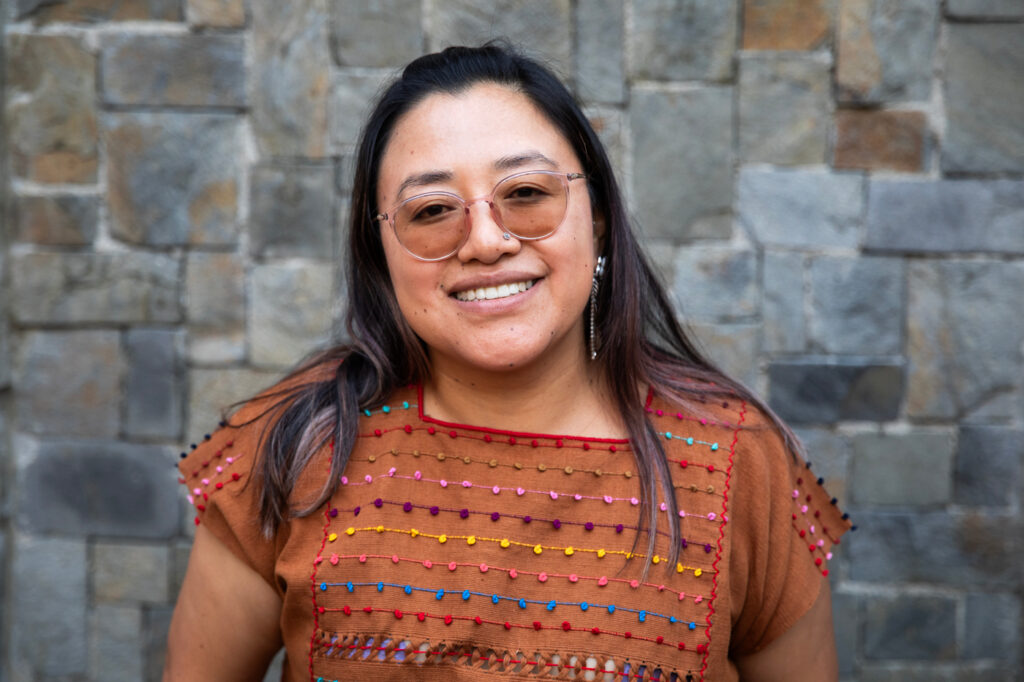
The Power of the Hummingbird, the Roots of the Struggle
Tz’ununija is a movement of Maya women organised at local, regional, and national levels. It takes its name from the tz’unun – the hummingbird – which in Maya culture symbolises resilience and vitality.
The organisation’s structure is both deliberate and ceremonial: a council of twelve women, selected through Maya rituals; a technical team managing administrative work; and a political council with representatives from each region. Decisions are shaped from the ground up, beginning with needs identified in the villages and extending to national advocacy.
From Grassroots to National Impact
IM supports the movement’s core areas of work: combating violence and racism, strengthening organisational capacity, and promoting women’s participation in politics and civic life. This involves amplifying voices that would otherwise go unheard—enabling women to understand and claim their rights, educate others, and drive change from within.
“We know change doesn’t come from above. It starts here, with the work of the ants,” Eva notes.
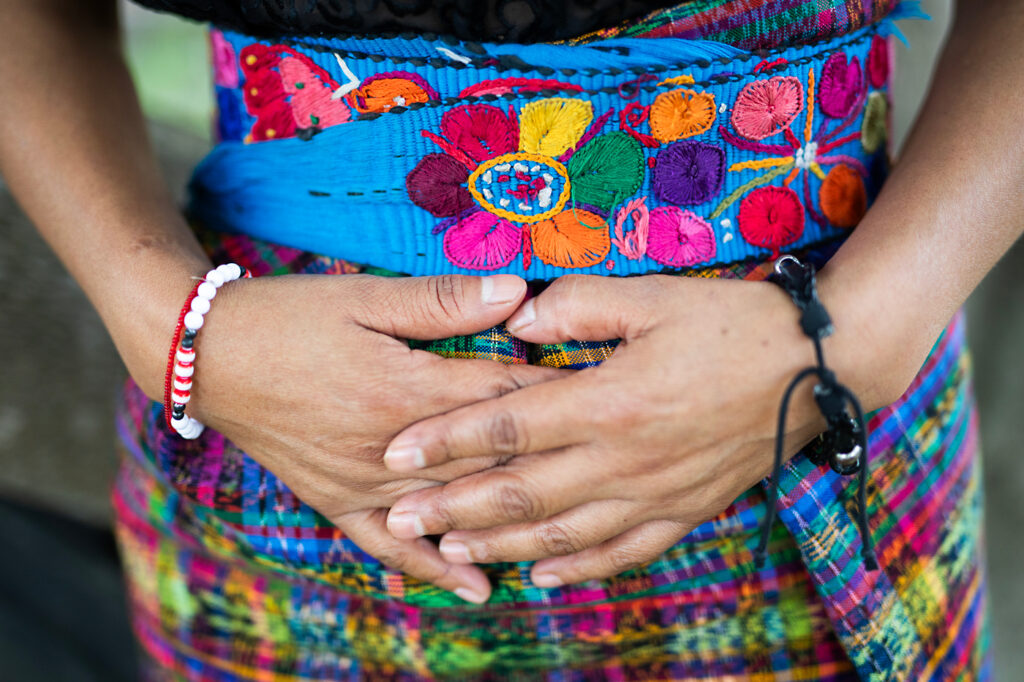
The Peace Accord and Its Aftermath
The women’s organising is rooted in a long struggle for justice and recognition. When Guatemala’s brutal civil war ended in 1996, the peace accord granted formal recognition of Indigenous peoples’ cultural and political rights for the first time. It stipulated respect and promotion of Maya languages, knowledge, and participation. Yet most promises remained unfulfilled. Racism, inequality, and land conflicts persist, even as the accord created the political space in which movements such as Tz’ununija now operate.
From Silence to Change
The next day, far from the capital’s exhaust fumes, representatives from several women’s groups gather in a small village. Here, reality is tangible: women selling maize to fund their children’s schooling; others supporting survivors of violence. Each carries her own story of discrimination, resistance, and change.
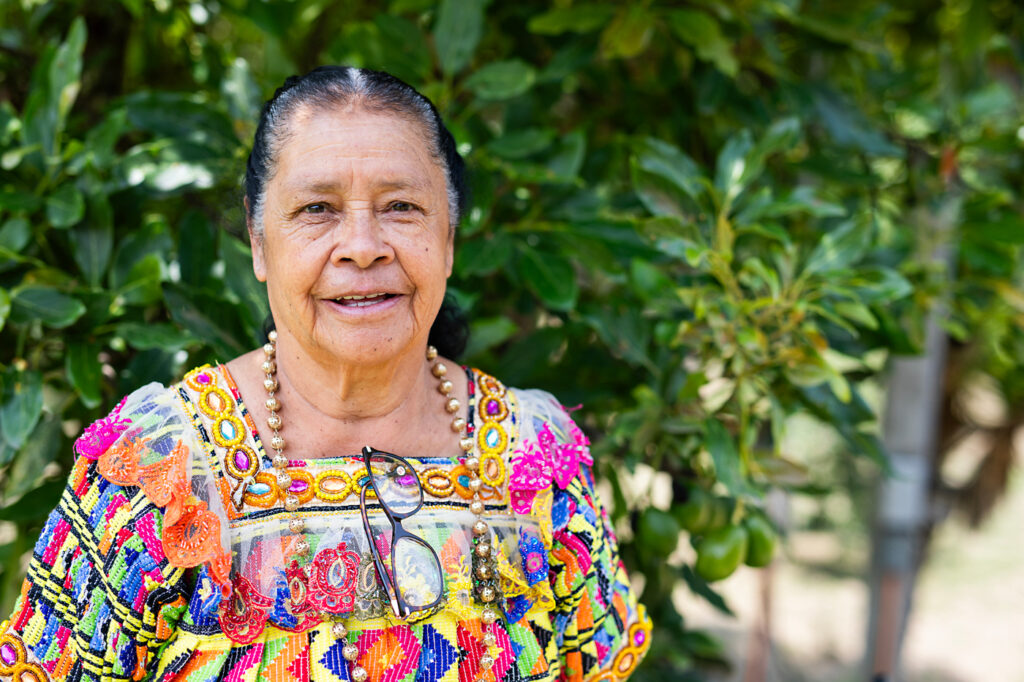
In a garden shaded by a large tree, we sit in a circle on simple plastic chairs, sharing fresh fruit. When Arcadia Muz Chavez de Cutzal, the homeowner, calls for quiet, she recounts her experience: years as a local schoolteacher facing racism from the principal and a pervasive culture of silence among colleagues, leading to a deep depression.
“The principal refused to speak to me for an entire month. I also saw how mothers from the Indigenous community were treated, and I couldn’t bear it anymore,” she says.
Finding Belonging in the Women’s Group
Out of her depression came something new. A friend introduced her to a women’s group linked to Tz’ununija, where her experiences were acknowledged and her voice valued. Today she advises women facing violence, acting as interpreter, accompanying them to the police, and supporting them in legal processes. She also teaches about rights, identity, and the ways colonialism continues to shape language, law, and social structures.
“Some women tell me, ‘If my husband sees me with you, he will kill me.’ But they still come – because they know we listen and stand with them,” Arcadia says.
Arcadia describes a youth programme comprising eight training modules covering anti-racism, feminism, and Guatemala’s political history. Free and held at weekends, the courses include meals and transport, with participants often being the children of women in the movement – a new generation equipped with the language of justice.
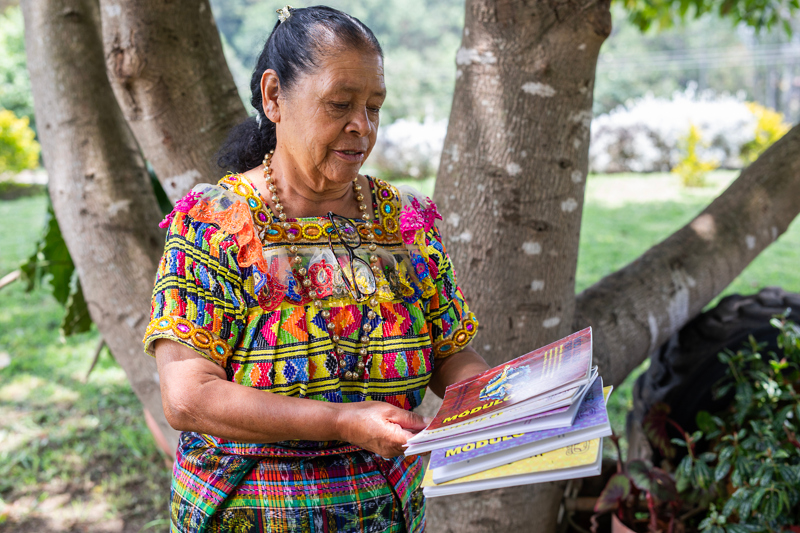
From the Personal to the Political
Ana Botan Chiviliu, wearing a beautifully embroidered huipil adorned with pink flowers and birds, recalls the violence she suffered as a child. She was never allowed to attend school; as a girl, her “place” was in domestic work and caring for siblings. Through Tz’ununija, she realised her experiences were not normal but a form of discrimination. She is now a leader in her village.
“Before, they would say: you are a woman, you must not speak. Now they listen to me.”
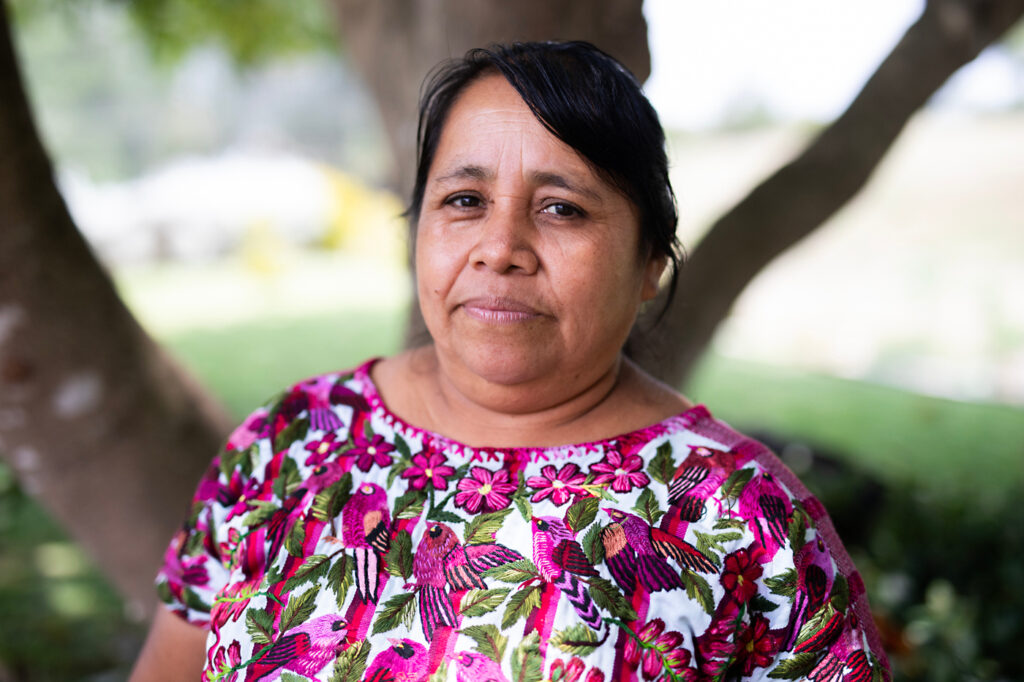
Beyond individual stories, the movement engages in systematic work against structural oppression. Tz’ununija is one of the few actors in Guatemala actively monitoring CEDAW – the UN Convention on the Elimination of All Forms of Discrimination against Women—and submitting shadow reports to the committee. These reports highlight the specific conditions faced by Indigenous women: military operations in their territories, heightened exposure to violence, land conflicts rooted in colonial-era boundaries. The constitution itself, they argue, is fundamentally colonial.
CEDAW recommendations become tools in national advocacy. Yet it is not the UN or the state that drives change – it is the women themselves.
“Sometimes All That’s Needed Is for Someone to Be There”
Andrea Quiacain Ixcayá has spent 29 years in a women’s committee. She, like all in the group, has survived violence. Now she accompanies other women to courts and state offices, working without pay despite being linked to the Public Prosecutor’s Office.
“I have 19 active cases. No one helps me. I listen, I accompany. And sometimes all that’s needed is for someone to be there.”
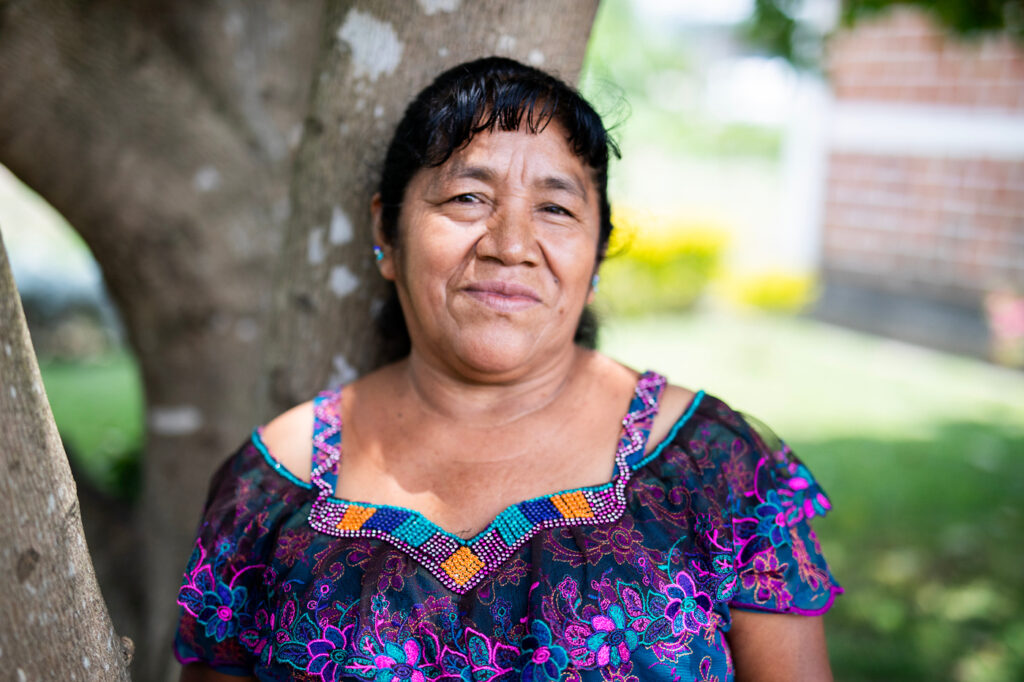
She recounts cases of girls who have been raped: a ten-year-old whose case was not heard until five years later; authorities demanding evidence even from children; fathers refusing paternity recognition; police mocking women because of their language.
“Even when they speak our language, they discriminate against us – because we are Maya women. That’s enough.”
Resistance as the Foundation of Society
In many municipalities, state-run women’s offices exist – but often do little beyond referring cases to Tz’ununija. The women in the movement are unpaid, yet they carry their communities.
Mujeres de Tz’ununija’ exemplifies how resistance grows in the margins: how political struggle can begin with personal trauma and evolve into collective action; how justice is built by those who have themselves been marginalised.
They do not organise because it is easy. They organise because it is necessary.
In a world where rights are constantly under threat, theirs is the work that must be heard – and supported.
By: Malin Kihlström